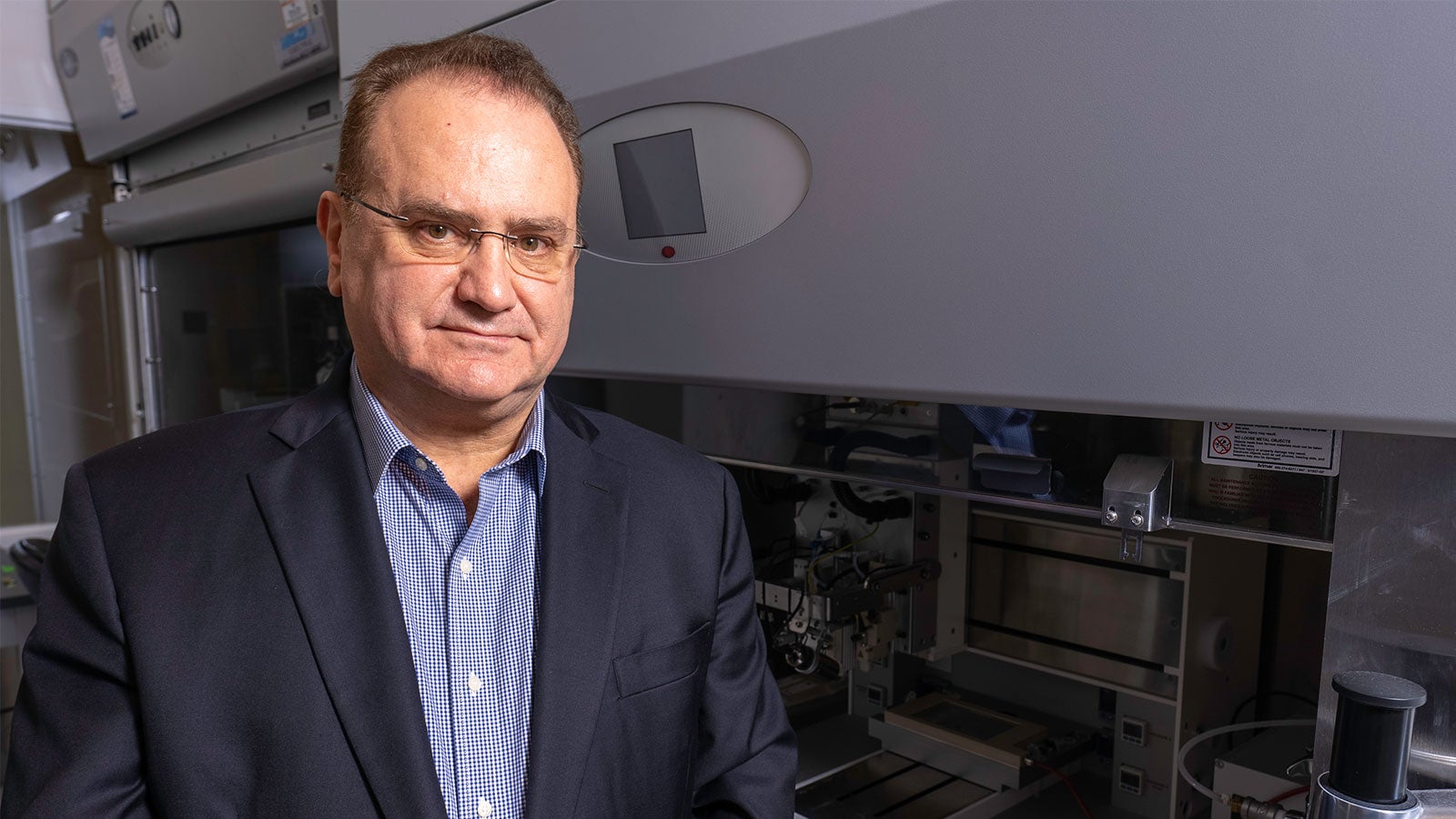Bioengineers at Rice have been awarded $1.4 million as part of a multi-center consortium funded by the Advanced Research Projects Agency for Health (ARPA-H) to develop strategies for reversing the effects of osteoarthritis.
“We’re thrilled to be a part of this collaborative effort to tackle one of the most challenging degenerative joint diseases and develop, test and commercialize solutions for patients,” said Antonios Mikos, Louis Calder Professor of Bioengineering.
ARPA-H is an agency within the U.S. Department of Health and Human Services (HHS), and the osteoarthritis funding is administered through its National Initiative for Transforming Research Outcomes program. Mikos’ collaborator on the project is Vasiliki “Aliki” Kolliopoulos, a Rice Academy Postdoctoral Fellow in his lab.
According to the Centers for Disease Control, some 32.5 million people in the U.S. and 500 million globally suffer from the degenerative joint disease known as osteoarthritis.
The consortium, named Orchestrating Multifaceted Engineering for Growing Artificial Joints (OMEGA), is led by Case Western Reserve University in Cleveland, Ohio. Overall, OMEGA has been awarded $47.7 million for two phases of research spanning five years.
Various research teams within OMEGA will investigate and integrate perspectives including biomechanics, regenerative medicine, computational modeling and clinical practice to develop equitable interventions targeting osteoarthritis in patients. As part of the program, 40 patients within five years will have knee replacements with “live joints,” or biocompatible bone and cartilage grown from human cells that can restore natural function. The goal is to scale up the technology to make treatment available to patients commercially.
“Most of us know someone who has this degenerative joint disease. The potential treatment outcomes from this research could improve the quality of life for millions suffering with osteoarthritis,” said Mikos, director of the Biomaterials Lab, the Center for Excellence in Tissue Engineering, and the J.W. Cox Laboratory for Biomedical Engineering at Rice.
The Biomaterials Lab will provide state-of-the-art equipment and resources for the design and fabrication of 3D-printed scaffolds, crucial for the creation of live joints. Uday Jammalamadaka, manager of the Biomaterials Lab, will also contribute to the project.
Current treatment for osteoarthritis offers neither a permanent “cure” nor solutions without negative effects. In 2020, some 1.5 million Americans underwent hip and knee replacements, a number expected to increase by 11 percent annually to about 5 million procedures by 2040 as the aging population increases and incidence of obesity grows.
Prosthetic implants presently have a short- to -medium-term life cycle, lasting about 20 years. Additional surgery is required as the implants wear out.
Other members of the consortium include Colorado State University, Ohio State University, Washington State University, along with the Boston biotech firm Sapphiros AI Bio, University Hospitals Medical Center of Cleveland, the Louis Stokes Cleveland VA Medical Center, and Massachusetts General Hospital.

